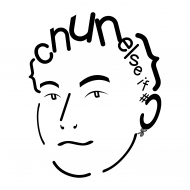前言介紹
- 這款 WordPress 外掛「Kblog Metadata」是 2012-04-01 上架。
- 目前有 20 個安裝啟用數。
- 上一次更新是 2016-04-07,距離現在已有 3314 天。超過一年沒更新,安裝要確認版本是否可用。以及後續維護問題!
- 外掛最低要求 WordPress 3.0 以上版本才可以安裝。
- 有 1 人給過評分。
- 還沒有人在論壇上發問,可能目前使用數不多,還沒有什麼大問題。
外掛協作開發者
外掛標籤
scholar | science | academic | res-comms |
內容簡介
部分:
此外掛會顯示部落格相關的作者、何時發布文章等資訊,也提供使用者可以看到的小工具和可讓電腦提取相同資訊的運算表示法。這讓讀者對文章作者有更明確的認知,以及如何引用文章。讀者可以下載 BibTeX 檔案來引用文章。另一個小工具則提供深層連結至網頁存檔,讓讀者可以查閱舊版文章。
此掛件是 Knowledgeblog 專案 (http://knowledgeblog.org) 的一部分,該專案致力於開發 WordPress 作為學術出版工具的外掛,不論是個人作者,還是會議和工作坊的出版物。除了這個檔案之外,額外的文件可在process網站找到。
將引用文章的作者、標題和出版日期等書目資訊嵌入網頁通常是非常有用的。有多種不同的規範和標準來描述這種方法,它們在形式、接受度、年代以及規範清晰性方面差異很大。
實際的成果是,自動捕獲元數據以使 Greycite (http://greycite.knowledgeblog.org) 等工具和各種書目軟件能夠運作是一件比較臨時的事情。有時候它會運作,有時候則不會。kblog-metadata 採取的方法是以尽可能多的格式添加元數據,而不是要求使用者為每個規範添加單獨的外掛程式,希望這樣,無論哪個工具,至少有一個能夠運作。
Kblog Metadata 增強了 WordPress 揭露和編輯學術文章書目資訊的能力,包含多個功能:
1. kblog-headers:添加不可見的元數據。
2. kblog-authors:允許多名作者,無需 WordPress 帳戶。
3. kblog-table-of-contents:以各種格式顯示所有文章的目錄。
4. kblog-title:設定文章容器標題(“blogname”),每個文章或使用自定分類法。
5. kblog-boilerplate:以小工具或文章內容顯示引用資訊。
6. kblog-download:下載文章的引用格式或其他格式。
7. kblog-archive:小工具,顯示網頁存檔。
我們將在可能的情況下包含新的格式或規範,只要它們不是太負擔。如果您對新格式感興趣,請寄電子郵件至郵件列表。
Kblog Headers
學者可能會想要宣傳自己的工作,有許多工具可以使用。我們目前支援三種獨立的標準,包括:
1. COinS (http://ocoins.info)。
2. Google Scholar 建議的 Meta tags。
3. Open Graph Protocol (http://ogp.me)。
這些將在安裝插件時自動添加至所有頁面和文章。元數據可從使用者檔案、WordPress 元數據或 Kblog 作者元數據中取得。
Kblog Table of Contents
此目錄功能有兩部分:
原文外掛簡介
This plugin displays who, what and when information about a blog and its
posts; it provides widgets which readers can see, as well as a computational
representation that allows computers to extract the same information. This
provides greater clarity on who posts are written by, and how they should be
cited. Readers can download the citation as a BibTeX file. Another widget
provides deep links through to Web Archives, allowing readers to check old
versions of posts.
It is part of the Knowledgeblog project (http://knowledgeblog.org), which is
developing plugins to improve WordPress as a tool for academic publishing,
either for individual authors, or for conferences and workshops publishing
proceedings to the web. As well as this file, additional documentation is
available at
process.
It is often useful to embed bibliographic metadata, describing the author(s),
title and publication date into a web page. There are a variety of different
ways of doing this, described in a variety of different specifications and/or
standards. These vary widely in their formality, uptake and age, as well as
clarity with which the specification is written.
The practical upshot of this is that automatic capture of metadata which
enables tools such as Greycite (http://greycite.knowledgeblog.org) and various
bibliographic software to work is a somewhat ad hoc affair. Sometimes it
works, sometimes it does not. Rather than requiring users to add a separate
plugin for each of these specifications, kblog-metadata takes the approach of
adding metadata in as many formats as possible, in the hope that, for any
tool, at least one will work.
Kblog Metadata enhances the ability of WordPress to expose and edit
bibliographic metadata of academic posts. It consists of a number of
pieces of functionality
kblog-headers — adds invisible metadata
kblog-authors — allows multiple authors, without requring WordPress accounts
kblog-table-of-contents — displays all posts in a variety of formats.
kblog-title — set container titles (“blogname”) per post or using a custom taxonomy.
kblog-boilerplate — displays citation information as widget or in post
content
kblog-download — downloaded bib or other formats for posts
kblog-archive — widget to display web archives
We will include new formats or specifications where possible, so long as they
are not too computationally intensive. Please send email to the mailing
list if you are interested in a new format.
Kblog Headers
There are many tools to which academics may want to advertise their work. We
currently support three independent standards which are:
COinS (http://ocoins.info).
Meta tags as suggested by Google Scholar.
Open Graph Protocol (http://ogp.me)
These will be automatically added to add pages and posts on installation of
the plugin. The metadata is taken either from the user profile, the WordPress
metadata, or from Kblog Author metadata.
Kblog Table of Contents
The table of contents functionality comes in two forms: one designed for
embedding in an existing page, and one for computational consumption. To add a
table of contents to a page add a “shortcode” to your post contents.
[kblogtoc]
Additionally, it is also possible to retrieve a simple HTML or plain text
representation of the table of contents from (http://blogurl/?kblog-toc=txt)
or (http://blogurl/?kblog-toc=html). Author information comes from
Kblog Author.
You can specify the default category for the table of contents from the
Settings Menu, or accept the default which is to show them all.
Kblog Authors
Academic writing is more often multi-author than not, yet this is poorly
supported within WordPress. While there are existing co-author plugins these
often require assigning multiple user accounts, one per author, even though
many authors will never login to WordPress. Within Kblog Authors you can add
“display authors”, totally independently from WordPress accounts. They will
appear on Kblog Table of Contents and in metadata generated by Kblog Headers.
Authors can be added either on the “Edit Post” page of WordPress, or through
the use of an [author] shortcode within the document content. Authors
specified within the post content take precedence.
Kblog Title
Authors may wish to alter the apparent title of their blog for a post or a
group of posts. For example, I may wish to publish a paper that I have written
for a conference on my own blog, but wish the metadata to refer to the
conference. Alternatively, as with
bio-ontologies I may wish to host
multiple meetings on a single website (one per year, for instance), and have
the year, or meeting number, appear in the metadata. Kblog Title allows both
of these uses, by allowing the user to set the container name (“blogname”)
either for an individual post, or using an Event tag.
Acknowledgements
kblog-metadata includes the HumanNameParser from Jason Priem
(http://jasonpriem.org/human-name-parse/) which is licensed under the MIT
License.
Copyright
This plugin is copyright Phillip Lord, Newcastle University and is licensed
under GPLv2.
各版本下載點
- 方法一:點下方版本號的連結下載 ZIP 檔案後,登入網站後台左側選單「外掛」的「安裝外掛」,然後選擇上方的「上傳外掛」,把下載回去的 ZIP 外掛打包檔案上傳上去安裝與啟用。
- 方法二:透過「安裝外掛」的畫面右方搜尋功能,搜尋外掛名稱「Kblog Metadata」來進行安裝。
(建議使用方法二,確保安裝的版本符合當前運作的 WordPress 環境。
0.1 | 0.2 | 0.3 | 0.4 | 0.5 | 0.6 | trunk |
延伸相關外掛(你可能也想知道)
Kblog Include 》這個外掛可以讓您在文章中引用 arXiv 或其他學術倉庫的內容。例如,如果在文章中加入:, [kblog-inc server="arxiv"]1303.0213[/kblog-inc], , 文章摘要就會...。
Knowledgeblog Table of Contents 》解譯 [ktoc] 短碼以產生像 Knowledgeblogs 使用的專業字母順序目錄列表。, 目錄列表是從單一類別生成的,可透過簡單的設定選單或透過短碼上的「cat...。
